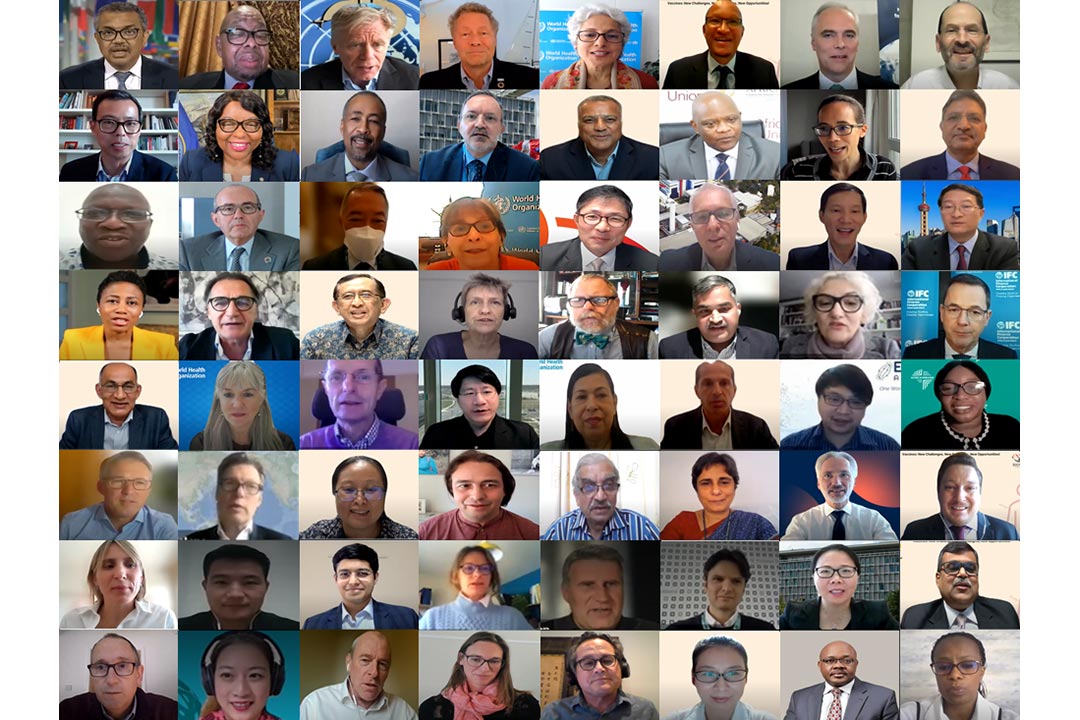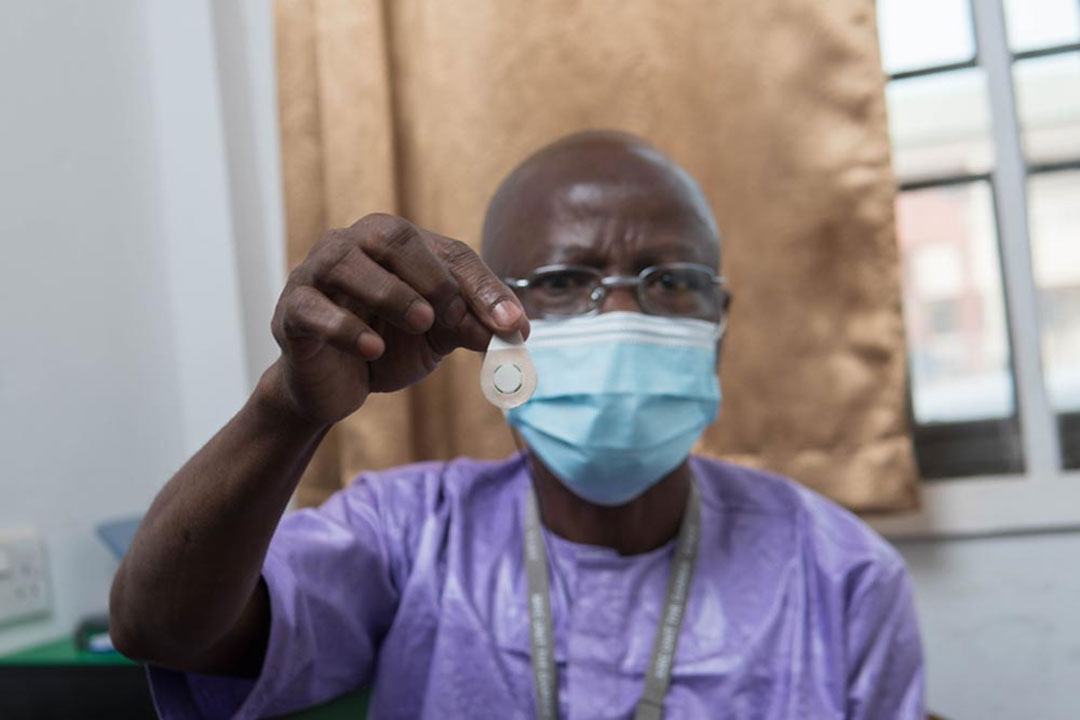Conclusions from the 22nd DCVMN Annual General Meeting
Last October vaccine manufacturers from developing countries across the world gathered with global health leaders to discuss vaccine inequity and ways to boost production globally. Here are the key takeaways.
- 9 March 2022
- 6 min read
- by Rajinder Suri , Benoit Hayman , Sai D. Prasad , Patrick Tippoo

The 2021 Annual General Meeting of the Developing Countries Vaccine Manufacturers’ Network (DCVMN), co-hosted by Biovac of South Africa, gathered over 350 delegates and 60 high-level speakers for three days of presentations, discussions, and networking. Following are the key take-away messages emerging from the event.
The COVID-19 pandemic made it apparent that a paradigm shift in vaccine development and production was crucial.
Honourable Minister of Higher Education, Science and Innovation South Africa, H. E. Dr Blade Nzimande, during his inaugural address, voiced his appreciation to the contribution of developing country vaccine manufacturers (DCVMs) in mitigating the COVID-19 pandemic. Sharing the vision of H.E. Cyril Ramaphosa, Honourable President of South Africa, Dr Nzimande left vaccine manufacturers and global agencies with a clear message: there is an urgent need to address vaccine inequity and to expand vaccine manufacturing capabilities in Africa. He concluded that active collaboration and fostering of partnerships will be crucial in ending the COVID-19 pandemic and building capacity in Africa to deal with future pandemics
Dr Tedros A. Ghebreyesus, Director General of WHO, in his keynote address, while praising the development of COVID-19 vaccines in record time, emphasised the failure of humanity in achieving vaccine equity. Citing the need for increased local manufacturing capacity in all regions and enhanced regulatory systems, he stated that the DCVMN is now more important than ever.
Dr Bruce Aylward, Lead, ACT-Accelerator, affirmed that the pandemic is not over and that without collective action there could be a potential loss of five million lives in 2022 and a revenue loss of $ 5.3 trillion by 2026. It was inspiring to learn that the entire UN system is behind developing country vaccine manufacturers, who are crucial and a central part of the ACT-A mission.
Dr Seth Berkley, CEO of Gavi, the Vaccine Alliance, highlighted that DCVMs are playing a key role in making vaccines affordable to millions of children in low- and middle-income countries. He cited that the cost of immunising a child with three new vaccines has been reduced by 57% through competitiveness and innovation by DCVMs. He further emphasised the speed in which DCVMs engaged in inhouse R&D and partnerships with research institutes and developers to develop and produce COVID-19 vaccines as proof of DCVM’s commitment to global health.
Have you read?
A clear message from Dr Richard Hatchett, CEO-CEPI, centred around the positive outcomes of the pandemic that could lead to a better world. Highlighting new platforms, institutional arrangements, methods, concepts of preparedness and regional partnerships, Dr Hatchett stressed the importance of taking advantage of this window of strong political will to secure critical resources and commitments.
Dr David C. Kaslow, PATH, stated that the COVID-19 pandemic has widened rather than narrowed the pre-existing immunisation gap between high income countries (HICs) and LMICs with differences in immunisation not solely attributed to the supply and affordability of vaccines, but also the cost of delivering vaccines to healthcare systems in low-income countries.
Dr. John Nkengasong, Director, Africa CDC, rightly underscored that vaccine production is a national security issue. A coordinated approach to define the ecosystem for vaccine manufacturing and develop a framework is needed as Africa moves from importing 99% of vaccines to manufacturing about 60% of its vaccines in the next 20 years.
As industry representatives, Thomas Cueni, Director General-IFPMA, and Dr Michelle McMurry-Heath, CEO and President of BIO, were extremely supportive of ensuring vaccine equity through strong innovation models, collaboration, scale up, scale out and technology transfers which will help generate 12 billion doses of COVID-19 vaccines in 2021.
Aurélia Nguyen, Managing Director, COVAX and Dr Melanie Saville, Director Vaccine Development, CEPI, discussed the challenges experienced by the COVAX Facility in supplying vaccines to LMICs. Key mitigation strategies include dose sharing initiatives and the efforts of the COVAX Manufacturing Task Force. In January, COVAX achieved the milestone of delivering one billion doses of COVID-19 vaccines.
Industry leaders from developing countries discussed the impact of the pandemic on their company’s vision. To meet growing demand, concerted efforts are being made to up-scale production, diversify product portfolios and enter new markets. A recent DCVMN survey identified that 90%more than of member companies have established plans to up-scale their vaccine manufacturing capacity in the next five years. Furthermore, the survey findings indicate that DCVMs are increasingly diversifying their use of vaccine technology platforms and product portfolios, a key step to strengthening local manufacturing and reducing the burden of infectious diseases in the regions where they are most prolific.
Delegates from global health and multilateral organisations discussed the lessons learnt from the COVID-19 pandemic. To control the current pandemic and prepare for future pandemics global partnerships, innovative financing mechanisms, regulatory harmonisation and enhanced access to technology are key enablers to ensure equitable and timely access to vaccines.
Furthermore, delegates reported that efforts to expand local vaccine manufacturing on the African continent require alignment and continued support from stakeholders to ensure that deliberate actions and sustainable business models are implemented. The Partnership for African Vaccine Manufacturing (PAVM) has published a Framework for Action, endorsed by the African Union Assembly in February 2022. The framework recommends eight bold programs to unlock Africa’s potential to grow and scale vaccine development and manufacturing over the next two decades. Access to technology will be fundamental to Africa’s ability to establish sustainable vaccine manufacturing. At the European Union-African Union Summit on 18 February 2022, it was announced that Egypt, Kenya, Nigeria, Senegal, South Africa and Tunisia have been selected as recipients to receive the technology needed to produce mRNA vaccines on the African continent.
The COVID-19 pandemic made it apparent that a paradigm shift in vaccine development and production was crucial. The fast-tracked development and large-scale production of several safe and effective COVID-19 vaccines would not have been possible if everyone had done business as usual. Moving-forward, innovation and partnerships will be critical to increasing access to high-quality vaccines. DCVMN, working in collaboration with international stakeholders, is prepared to make an increasing contribution to protect all people against infectious diseases.
Authors
Rajinder Kumar Suri
CEO of the Developing Countries Vaccine Manufacturing Network (DCVMN)
Email: r.suri@dcvmn.net
Benoit Hayman (*)
DCVMN International
Email: b.hayman@dcvmn.net
Sai D Prasad
Bharat Biotech International Limited
Email: prasadsd@bharatbiotech.com
Patrick Tippoo
Biovac
Email: PatrickT@biovac.co.za
(*) Corresponding Author
Conflict of Interest Statement
The authors declare that they have no known competing financial interests or personal relationships that could have appeared to influence the work reported in this paper.
Disclaimer
The authors alone are responsible for the statements and expressed in this article, which do not necessarily represent the views, decisions or policies of any mentioned institutions mentioned in this report, or with which the authors are affiliated.






